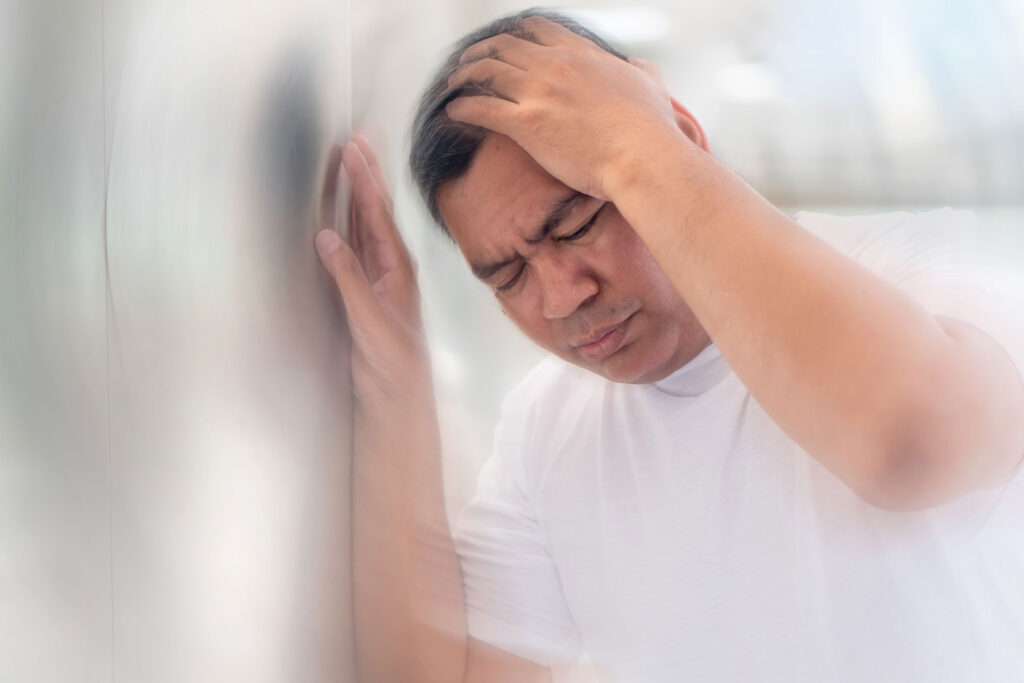Xanax is a commonly prescribed medication for anxiety and panic disorders that can provide much-needed relief for people who suffer from these health challenges. But Xanax overdose is a real threat if the substance is misused. Learning how to recognize the symptoms of a Xanax overdose may help save a life. If you or someone you care about has become dependent on Xanax, you can count on non-judgmental substance abuse treatment at Right Step Hill Country as well as our specialized benzo addiction treatment program.
Our experienced team will help you recover from addiction safely through a combination of medication and evidence-based therapies. Call us at 1.844.675.1628 to speak with one of our friendly staff members to find out more.
What Is Xanax?
Xanax, the brand name for the prescription drug alprazolam, is part of the benzodiazepine group of compounds. It works by elevating the gamma-aminobutyric acid (GABA) level in the brain, which induces a calming effect and reduces feelings of panic, anxiety, and tension.
Xanax is available as a tablet, extended-release capsule, sublingual tablet, or liquid. It requires a valid prescription for medicinal use, but due to its powerful calming properties, many people misuse the medication or access it illicitly for recreational use.
Signs of Xanax Abuse
If you’re unsure if you or someone you love is misusing Xanax, here is a list of common symptoms that may indicate a growing problem and a need for treatment:
- Drowsiness and sedation – Experiencing excessive sleepiness or lethargy, even during the day.
- Mood swings – Unpredictable mood changes, including irritability, agitation, or periods of euphoria.
- Doctor shopping – Visiting multiple doctors to obtain additional prescriptions for Xanax.
- Neglecting responsibilities – Ignoring work, school, or family obligations due to drug use.
- Physical dependence – Needing higher doses to achieve the same effects and experiencing withdrawal symptoms without the drug.
- Social withdrawal – Isolating from friends and family, preferring to spend time alone or with other substance users.
- Financial problems – Unexplained financial issues due to spending money on acquiring Xanax.
- Behavioral changes – Noticeable changes in behavior, such as increased secrecy or defensiveness about drug use.
If you’re experiencing these symptoms you may be at risk of a Xanax overdose. It’s important to get professional assistance right away. Enrolling in a benzo addiction treatment program like the one at Right Step will help you understand the potential underlying issues of the addiction and get you on a solid path to recovery.
What Are the Symptoms of Xanax Overdose?
Recognizing the signs of an overdose is critical. If someone you love is struggling with Xanax abuse—taking their medication too frequently or in higher than recommended doses—they may be at serious risk. Overdose is always a concern if an individual is using Xanax without medical supervision. Some of the most common symptoms of Xanax overdose include:
- Slurred speech
- Dizziness
- Impaired coordination
- Confusion
- Difficulty breathing
- Loss of consciousness
- Fainting
- Seizures
If you do suspect someone has overdosed, get emergency help right away. Then, stay with the person and remain calm–reassuring them that help is coming. Do not try to move the person, induce vomiting, or provide them with any food or drink unless advised to do so by a medical professional. You may need to remain on the phone with emergency personnel until help arrives.
Preventing a Xanax Overdose
There are several precautions you can take to minimize the chances that you or a loved one will experience a Xanax overdose:
- Use your medication only as prescribed by your provider. If you feel the prescribed dosage is ineffective for your symptoms, speak to your provider. Do not increase your dosage without approval from your doctor.
- Do not share or sell Xanax to others. If someone asks you for Xanax to address anxiety or panic symptoms, suggest they get a valid prescription from their provider.
- Avoid using Xanax alongside other depressant substances like alcohol, opioids, or sleep medications. Combining these substances can amplify the sedative effects and lead to respiratory depression.
- If you have a history of substance misuse, speak to your doctor about whether it’s safe for you to use Xanax.
If you notice that your Xanax dosage no longer seems to provide the same calming effects, you may have developed a tolerance to your medication. This is also concerning, as it may indicate a dependence on the drug. Talk to your provider about how to proceed.
Call The Right Step Hill Country to Begin Your Recovery from Xanax Abuse
Xanax can effectively treat anxiety or panic disorders, but when misused, overdose becomes a genuine risk. If you’re concerned about your use of Xanax, seek help at The Right Step Hill Country. Our team will support you by providing a personalized treatment plan to address your unique needs and promote lasting recovery. Call us at 1.844.675.1628 or complete our online contact form to find out more.
We’re here to help you on the path to recovery.

